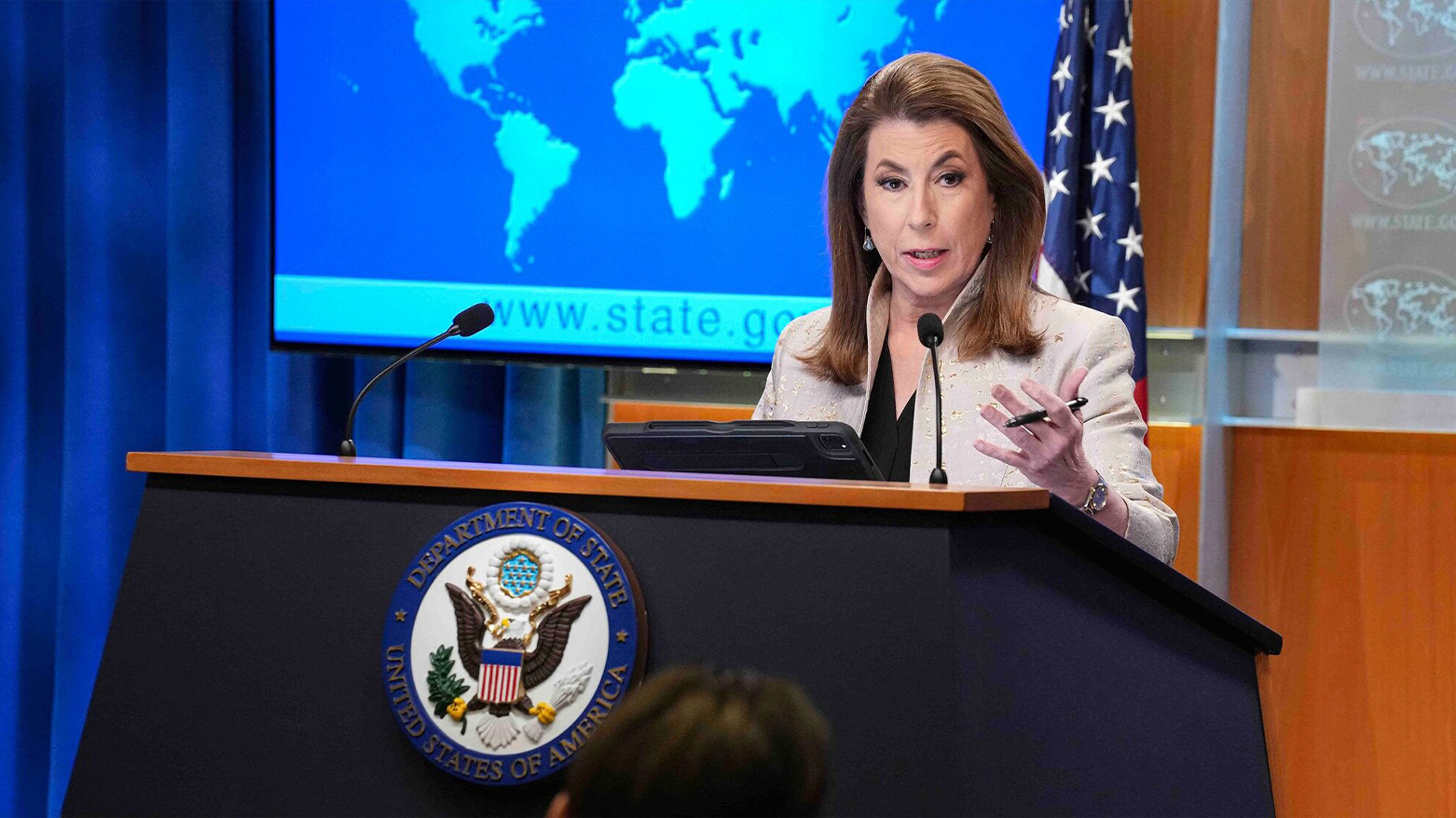U.S. Urges Diplomacy Amid Escalating Israel-Iran Conflict, Prioritizes Safety of Americans Abroad
The U.S. State Department reaffirmed its commitment to protecting Americans amid the Israel-Iran conflict, urged citizens to enroll in STEP, confirmed indirect Iran talks, and emphasized diplomacy. Evacuations, nuclear concerns, and regional security were key topics.

By Kamaran Aziz
ERBIL (Kurdistan 24) – The U.S. State Department reaffirmed its commitment to the safety of American citizens and a diplomatic resolution to the intensifying Israel-Iran conflict during a comprehensive press briefing held Friday by Department Spokesperson Tammy Bruce.
Speaking from Washington, D.C., Bruce outlined the U.S. government's active measures to support its citizens in conflict zones across the Middle East, particularly Israel, the West Bank, and Iran.
“The U.S. Department of State has no higher priority than the safety and security of Americans,” Bruce said, encouraging citizens abroad to enroll in the Smart Traveler Enrollment Program (STEP) and utilize a newly introduced crisis intake form on the State Department’s website.
American Evacuations and Travel Guidance
The briefing confirmed that the U.S. has assisted over 25,000 people seeking guidance amid the ongoing conflict.
Although Bruce declined to specify how many Americans are actively attempting to leave Israel or Iran, she urged all U.S. nationals in affected areas to contact U.S. embassies or utilize official online portals for assistance.
When asked about evacuation efforts, Bruce acknowledged independent operations like those carried out by Florida Governor Ron DeSantis, who reportedly helped evacuate 1,500 Americans from Israel.
While not directly coordinated with the State Department, Bruce acknowledged such efforts as part of “existing means” citizens could pursue.
Ongoing Hostilities and Diplomatic Channels
The conflict between Israel and Iran continues to evolve, with Israeli airstrikes reportedly targeting strategic Iranian sites, and Iranian officials threatening to halt talks unless these attacks cease.
Asked about Iranian conditions for resuming dialogue, Bruce said the U.S. would not speculate or commit publicly to mediation terms but reiterated President Trump’s commitment to diplomacy.
In response to concerns from the International Atomic Energy Agency (IAEA) regarding potential risks to Iran's nuclear facilities—specifically the Bushehr reactor—Bruce deferred to Israeli authorities while declining to speculate on hypothetical scenarios.
She confirmed the administration’s firm position that Iran must never acquire nuclear weapons, a non-negotiable stance frequently emphasized by President Trump.
Bruce also confirmed that indirect contacts with Iran have taken place through Special Envoy Steve Witkoff.
While declining to elaborate on the nature or progress of those engagements, Bruce cited the President’s own recent remarks indicating a “substantial chance” of negotiations within the coming two weeks. “He genuinely – it’s not posturing – he wants this resolved diplomatically,” she stated.
Regional Implications and Allegations of Human Shields
The State Department acknowledged reports that Iran is using civilians as human shields around military sites, including in the city of Kermanshah, in Iranian Kurdistan. While Bruce confirmed awareness of such reports, she declined to offer further comment.
In response to a separate question regarding a claim by Israel’s UN representative that Iran attempted to assassinate President Trump and Prime Minister Netanyahu, Bruce stated the Department had “no comment,” urging reporters to contact the relevant diplomatic offices for clarification.
The topic of potential Chinese involvement in the conflict also surfaced, with Bruce declining to confirm reports of a Chinese cargo plane heading to Iran, pledging instead to provide information after further review.
International Engagement and Next Steps
While President Trump has not yet committed to attending ongoing Geneva talks involving European intermediaries and Iranian representatives, the administration expressed cautious optimism.
Bruce emphasized that future decisions, including the possibility of high-level U.S. involvement, rest solely with the President. “He is the one who knows,” Bruce said, describing the two-week window Trump set for a decision on direct engagement as a strategic calculation.
In the meantime, the Secretary of State, Marco Rubio, is expected to meet with key international partners next week at The Hague for a NATO gathering, which is likely to involve further discussions on the Israel-Iran conflict, regional security, and allied cooperation.
Humanitarian and Symbolic Moments
Beyond the immediate crisis, the briefing also touched on symbolic events.
Bruce celebrated the safe return of Edan Alexander, a U.S. citizen previously held hostage by Hamas, calling it “a reminder of our commitment to Americans wherever they may be in the world.”
The State Department also marked the observance of Juneteenth, commemorating the emancipation of enslaved African Americans, as a celebration of “freedom and resilience”—a reminder, Bruce said, of the American values guiding its foreign policy decisions.